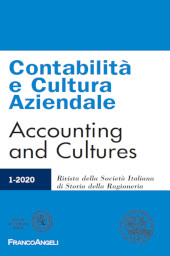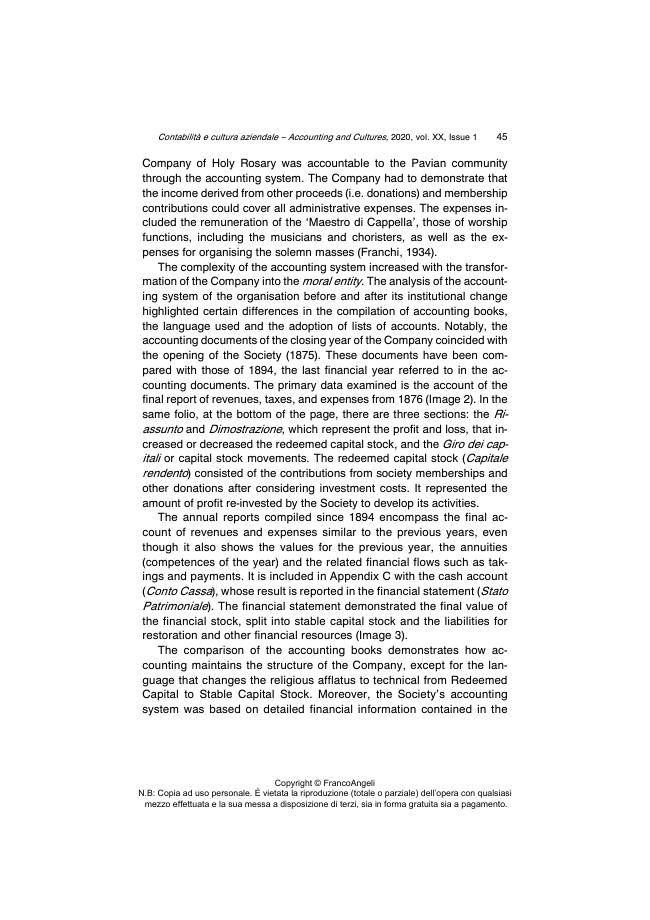Historical perspective of structuration theory : the case of the Society for the preservation of the christian art monuments in Pavia (1875-1908)
33-56 p.
Introduction: This research is inspired by numerous stimuli from accounting studies under both structuration and historical perspectives. Giddens' Structuration Theory based research calls for more investigations on the relationships between social structures and agents' actions in a specific time-space context. However, accounting historians addressed research to explore the accounting system in a non-profit organisation operating between the sacred and the profane. The study of the Society for the Preservation of the Christian Art Monuments in Pavia (1875-1908) has allowed fulfilling these gaps, considering the rich accounting sources available at the Civic Historical Archive of Pavia. Aim: Prior literature has addressed the research to explore if and how accounting was involved in the evolution of the preservation of the Christian art monuments in Pavia (1875-1908).
Their origin referred to the earlier Company of Holy Rosary (1577) with the mission to conduct solemn celebrations, using sacred music, against the plagues. These research questions have been investigated to widen knowledge on the accounting history of non-profit organisations with a philanthropic and religious purpose. Methodological Approach: The research methodology is based on a longitudinal case study: The Society for the Preservation of the Christian Art Monuments in Pavia (1875-1908). Upon examination of the archival sources, a reconstruction of the history of the Society based on the contextual, and institutional and organisational changes as been attempted. The Structuration Theory has been adopted to interpret the accounting sources.
Moreover, the synchronic approach has enabled the development of critical analysis, considering the trend of accounting knowledge during the period of this study. Main Findings: The research findings highlight the traits of continuity and changes in accounting with the contextual and institutional or organisational evolution of the Society. Accounting has contributed to the resilience and relevance of this organisation. The traits of changes, connected to the structural dimensions of accounting, enabled the accountability of information on the Society. This legitimised its philanthropic mission and strengthened the accounting domination, secularly than ecclesiastic. The research highlights how the double facade of accounting guaranteed the Society's resilience by fulfilling both technical and spiritual objectives during its long-existence. [Publisher's text].
-
Articles from the same issue (available individually)
-
Information
ISSN: 2283-7337
DISCIPLINES
KEYWORDS
- Moral entity, Christian art, structuration theory, accounting, social structure, resilience



